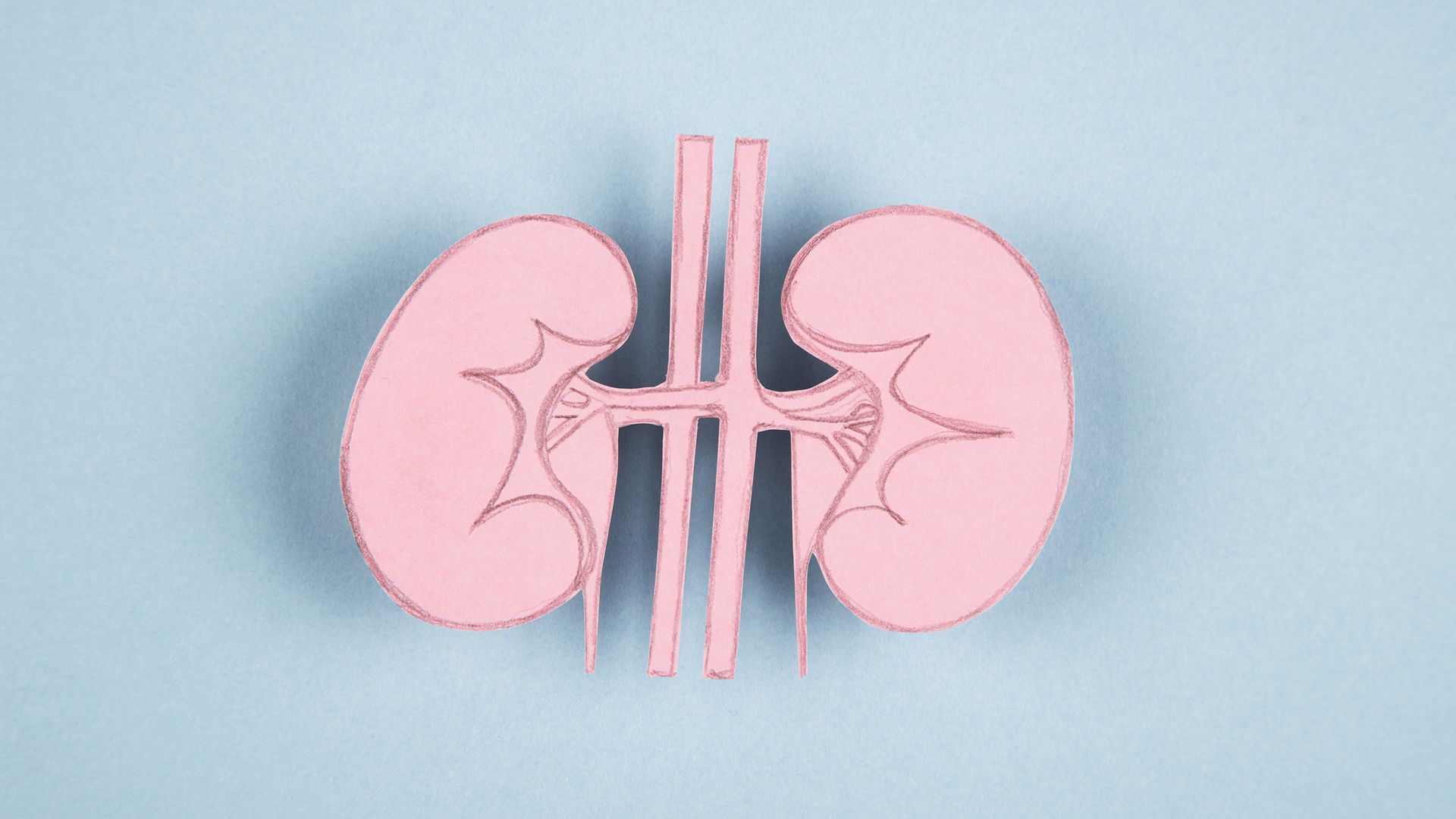Updated on June 12, 2024
The kidneys are a pair of organs that act as filters for the blood, removing excess fluid, salts, minerals, foreign particles, and waste products that are created as cells produce energy. Located alongside the lower spine, each kidney is about the size of a fist and contains roughly a million filtering units called nephrons.
Chronic kidney disease (CKD) is a condition where the kidneys become damaged and are no longer able to effectively filter the blood. Diabetes is among the most common causes of CKD. It occurs when high blood glucose levels cause damage to the blood vessels in the kidneys. High blood pressure is also a significant contributing factor to chronic kidney disease (and is also common among people who have diabetes).
CKD caused by diabetes is called diabetic kidney disease or diabetic nephropathy. It is a progressive disease, meaning it gets worse over time, especially when left untreated. The advanced stage of the disease—end stage renal disease—has a high mortality rate and requires dialysis and kidney transplant to prolong a person’s life.
Treatment for diabetic kidney disease
Early diagnosis is essential to treating diabetic kidney disease, and anyone with diabetes should discuss the risk of kidney problems with their healthcare provider. You should have your kidneys tested every year if you have type 2 diabetes or if you have had type 1 diabetes for 5 years or longer.
There is no cure for diabetic kidney disease, and treatment focuses on controlling blood glucose, controlling blood pressure, preventing cardiovascular complications (like heart failure), and preventing further damage to the kidneys. It’s common for people with diabetic kidney disease to take multiple medications to meet these treatment goals.
Diabetes, chronic kidney disease, and associated disorders (like cardiovascular disease) are lifelong conditions that require ongoing management. A person living with any of these conditions may require a change in medications from time to time.
Reasons you may need to change medications
Any changes in medications—or any part of treatment—should always be made under the guidance of a healthcare provider. There are several reasons your healthcare provider may recommend changing treatments. Examples include:
- Results. If your numbers (such as A1C or cholesterol) are not improving, your healthcare provider may recommend a different approach to treatment.
- Side effects. If a medication is causing side effects, a healthcare provider may recommend making adjustments to a treatment plan. Because a decline in kidney function can affect how the body processes diabetes medications, side effects are an important topic to discuss with a healthcare provider.
- Complexity. Following dosing instructions can be difficult when taking several medications—and if you are having difficulty adhering to your treatment, tell your healthcare provider. They may be able to adjust a dosing schedule.
- Cost. If the out-of-pocket cost of a medication is a concern, your healthcare provider may be able to prescribe a similar medication that is more affordable.
- Newer therapies. Research into new ways to treat diabetes, kidney disease, and hypertension is ongoing. As new medications become available, your healthcare provider may recommend adding one to your treatment plan.
Questions to ask if you are being prescribed a new medication:
- What is the name of the medication?
- What is the dosage?
- How does the medication work?
- How is the medication taken?
- How often do I need to take this medication?
- What is the goal of taking this medication? How will we know it is working?
- How long will I be taking this medication?
- What are the potential side effects? Is there a risk of serious side effects?
- Are there things I will need to avoid while taking this medication, such as certain foods or activities?
- How will I feel while taking this medication?
- Can this medication interact with other drugs or supplements? Always tell your healthcare provider about all medications you are taking, including medications for other conditions, over-the-counter medications, and supplements.
- What will this medication cost? If I have concerns about the cost of this medication, who can I talk to?
Any time you have a question about a medication, your best source of information will be your healthcare provider or pharmacist.






